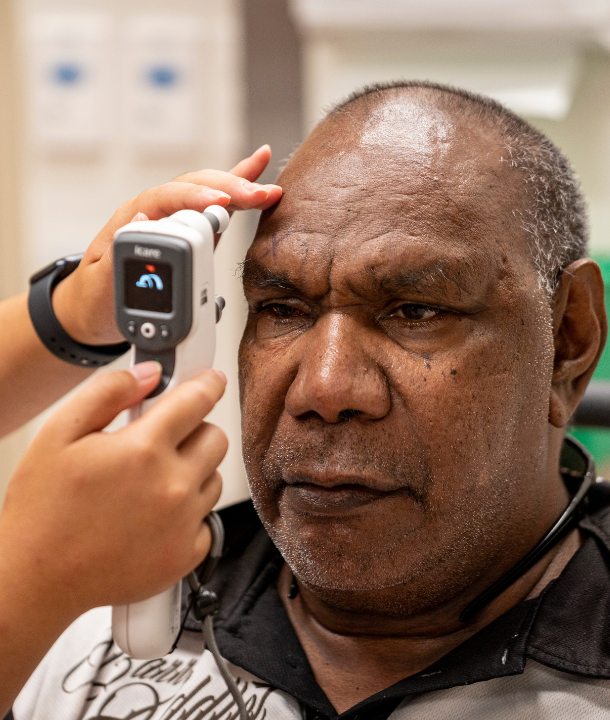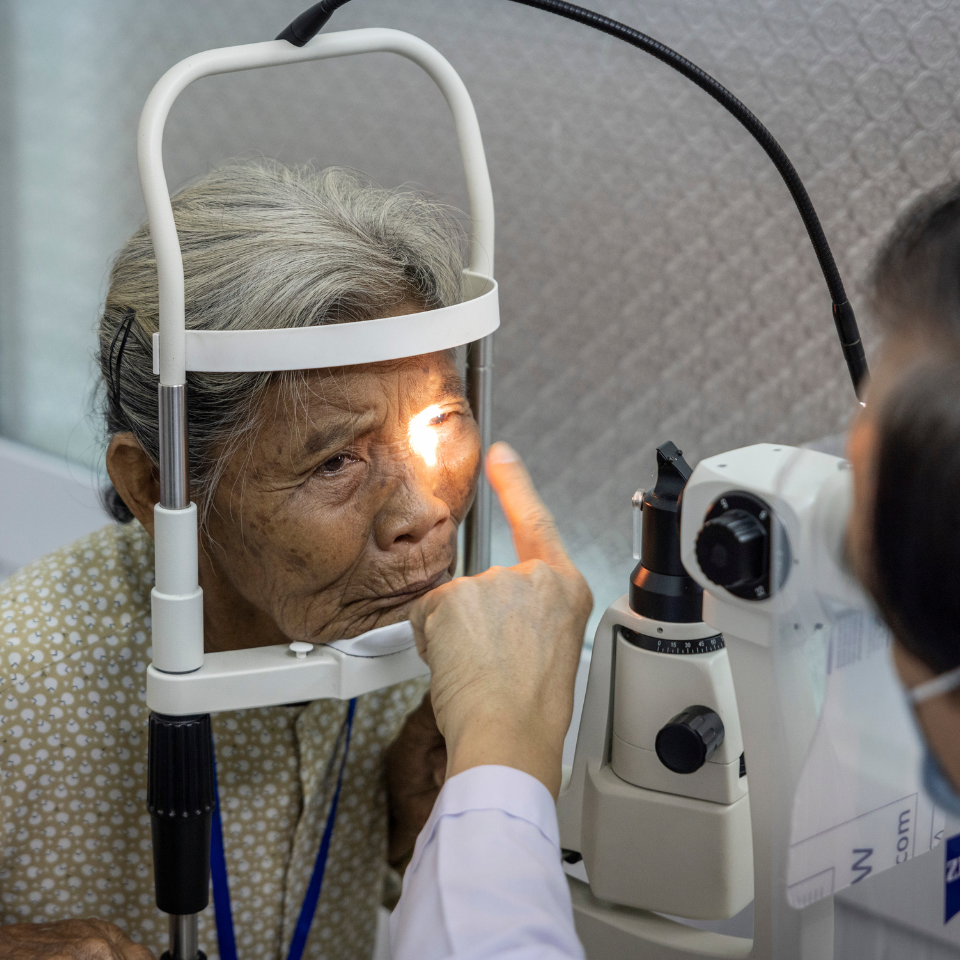The anatomy of the eye
Before you can truly understand eye diseases, it helps to learn a little about the eye itself. Despite being small (on average, each eye is around 2.5cm in diameter), it’s one of our most important organs. Our eyes have a lot of working parts and each part has a complex role in helping us see.

How does the eye work?
Our eyes function like tiny cameras, processing light reflected off surfaces to create images. The iris controls the size of the pupil, adjusting the amount of light that enters the eye. In bright light, the iris reduces the pupil size, while in darkness, it enlarges the pupil to let in more light.
Light passes through the cornea and lens, which focus it onto the retina at the back of the eye. The retina analyses colour, intensity, and form, converting these into electric impulses sent to the brain via the optic nerve. The brain then processes these impulses, combining them with our experiences and emotions to create the images we perceive.
The cornea and lens work together to focus light, with the lens dynamically adjusting its shape to help us see objects at varying distances. When light is not perfectly focused, glasses or contact lenses can correct the issue.

Want to learn more about the eye? Check out our Eye Health Glossary for more terms.
Learn more
Eye diseases and conditions
The eye diseases we work to eliminate are some of the most devastating in the world. We mainly work to reduce the impact of diseases and conditions such as cataract, trachoma, diabetic retinopathy and uncorrected refractive error for which safe and cost-effective ways of preventing vision loss or providing treatment to restore sight are available. However, our work isn’t exclusively on these diseases. Many eye diseases and conditions can be treated or prevented – an incredible injustice when so many millions of people who can’t see, also can’t access help.

Childhood blindness
Many eye diseases in children can lead to permanent blindness if left untreated. This is a significant problem in developing countries because many families don’t have access to basic eye health services. Three out of four children with blindness live in poverty. Research shows a child a minute goes blind, so early intervention is critical.

Clinical outcomes
Eye diseases like cataract, trachoma and diabetic retinopathy can lead to permanent blindness when these conditions are often treatable or preventable. Surgery can improve quality of life and general health. The key to the success of our programs is delivering effective treatment outcomes, where the beneficiary can be productive and independent.
Disclaimer: the content on this page is not intended to be medical advice. For medical advice, please contact your local health professional.

